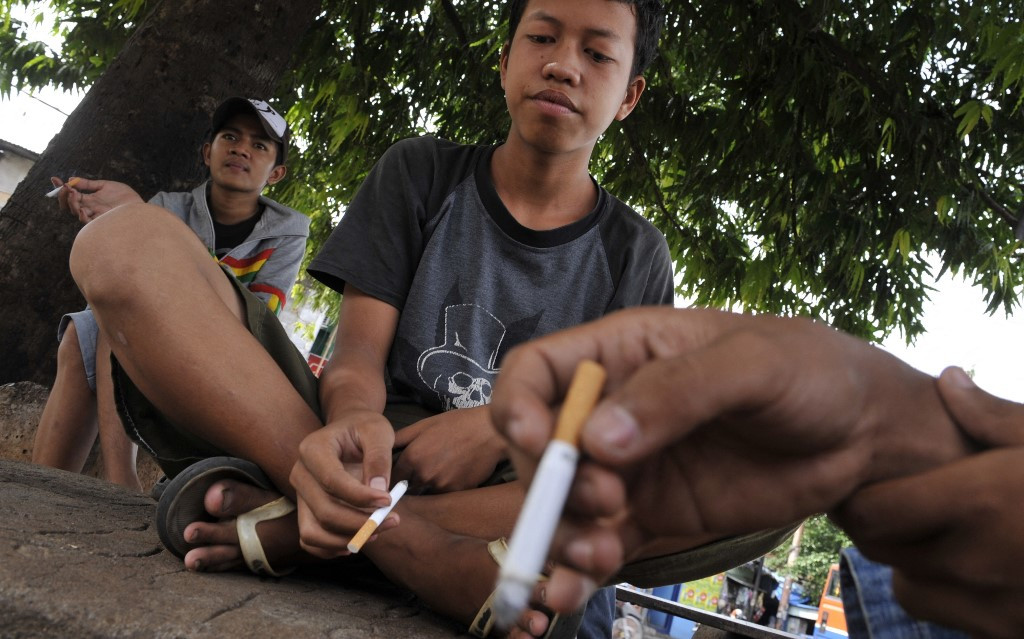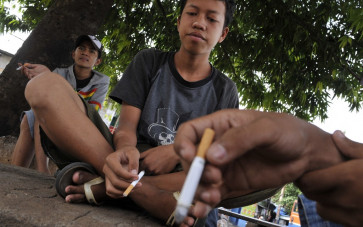Popular Reads
Top Results
Can't find what you're looking for?
View all search resultsPopular Reads
Top Results
Can't find what you're looking for?
View all search resultsLow income families’ tobacco indulgence hurts essential needs spending, study finds
Change text size
Gift Premium Articles
to Anyone
R
ecent research has revealed that tobacco consumption reduces Indonesian households’ spending in essential needs such as food, education and health care, adversely impacting human capital investment in the country, especially in low income families.
The study by the Center for Indonesia Strategic Development Initiatives (CISDI) found that on average, smoking households divert around 10.6 percent of their monthly budget on tobacco – their third largest expenditure after housing and foods.
Tobacco-consuming households allocate around 1.18 percent less budget on food, 3.9 percent less on housing and 2.1 percent less on utilities compared to non-smoking households. They also spend around 1 percent less on education and healthcare.
The study also created a simulation showing that cutting tobacco purchases by half would increase spending on staples by 14 percent, meat by 35 percent, housing by 24 percent and education by 31 percent in tobacco-consuming households.
The research suggested that the so-called crowding out effect of tobacco on food spending contributes to nutritional inadequacy among smoking households, especially in low income families, as they have lower calorie and protein intake compared to their non-smoking counterparts.
CISDI's principal Investigator I Dewa Gede Karma Wisana said that the recent report corroborated the findings of previous studies showing that tobacco-consuming households in the country have inferior child health outcomes compared to non-smoking households.
"A 2018 study finds that children living with smoking parents have a 5.5 percent higher probability of stunting compared to children whose parents are non-smokers. A similar study also found that children growing up in smoking families have lower cognitive scores than those from non-smoking families," Dewa said last week.



















